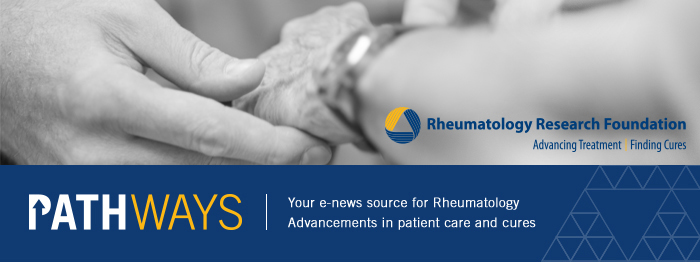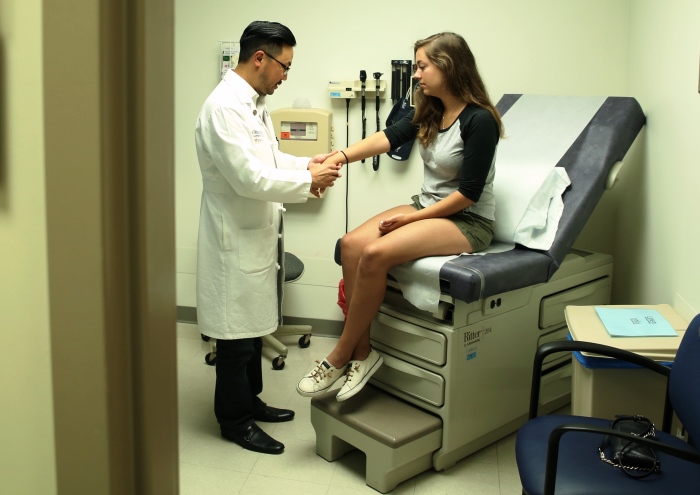Pathways

Volume 6 • Issue 10 • October 2017 • Rheumatology Research Foundation
Supporting Innovative Research
As researchers work to discover new treatments and cures, they often struggle to find funding to explore their more “out-of-the-box” ideas. Ellen Gravallese, MD, of the University of Massachusetts explains, “Sometimes some of your best ideas go by the wayside, because you can’t find organizations to support them.”
The Rheumatology Research Foundation seeks to fill the gap by funding innovative research to better understand rheumatic diseases, their cause and the best ways to treat them. Several Foundation awardees have used the funding to make groundbreaking discoveries that change the field forever and bring us one step closer to cures.
“What makes the Foundation so unique is that the funding is being put towards looking at very novel, cutting edge – sometimes high risk, high reward – research. That research can change the field,” says Dr. Gravallese.
To learn more about the exciting research funded by the Foundation, click here.
Meet people who are living with rheumatic diseases, and learn what the Foundation is doing to help. In this #RheumLife series, we will share patients' perspectives of life with rheumatic disease and feature the Foundation-funded researchers who are working to advance treatments and find cures. Visit the improving patient care page to to read more stories, or share your experience with us on Facebook or Twitter.
#RheumLife: Juvenile Arthritis

Did you know that kids can get arthritis? Approximately 300,000 children in the United States have been diagnosed. There are various types of chronic childhood arthritis, which can last from several months to many years. Growing up with arthritis presents unique challenges, but a board-certified pediatric rheumatologist can help.
|
 Lilly Romine Lilly Romine
|
Patient Perspective
After experiencing symptoms for several years, Lilly Romine was diagnosed with juvenile arthritis at the age of 13. Despite her condition and a few serious flairs, she is a cheerleader and an honors student. Her mother, Amy, explains, “Lilly has had a few rough patches with juvenile arthritis and hospital stays, but her pediatric rheumatologist has been amazing. I still have worries, but I know Lilly will be a success story.”
|
 David Markovitz, MD David Markovitz, MD
|
Efforts to Help
David Markovitz, MD, of the University of Michigan, is studying the role of the DEK protein in inflammation to explore possible new treatments for inflammatory arthritis, specifically juvenile idiopathic arthritis (JIA). Past research has discovered a new approach to targeting DEK as a means for reducing some forms of inflammation. Dr. Markovitz's study seeks to better understand the molecular mechanisms involved with this process, so that they may be used to one day treat children like Lilly.